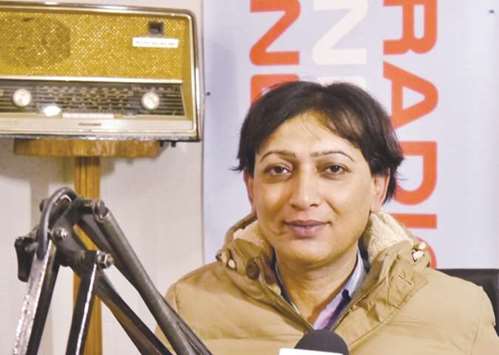For the first time in the history of Pakistan, a member of the transgender community has been appointed by the International Federation of Red Cross, the Red Crescent Societies, and the Pakistan Red Crescent (PRC) as an ambassador.
PRC youth and volunteer officer Misbah Mushtaq said that She Male Association for Fundamental Rights (SAFFAR) president Nadeem Kashish had been appointed an ambassador to educate the trans-community to cope with natural calamities and emergencies.
According to Mushtaq, the trans-community across Pakistan is usually neglected whenever a natural disaster occurs.
This move, she said, will empower them in the face of such an event.
“Unfortunately members of the trans-community are left without any first aid and are not even taken to hospitals during earthquakes, floods or other calamities since no one even wants to go near them,” Mushtaq said.
The PRC officer said that the members of the transgender community are one of the most vulnerable groups in society and such training would offer them a confidence boost while ensuring them that they are also a part of humanitarian action processes and this community.
Kashish recently represented Pakistan at the Gender Inequality of Risk – Asia Pacific Breakfast Roundtables, comprising 17 countries and other international organisations working for gender equality and human rights.
In a detailed presentation, the activist briefed the international community about the risks faced by the transgender community in Pakistan during disasters.
Sharing more details, Kashish said that in Pakistan many people do not co-operate with transgender people, even in emergencies, owing to the stigma attached to their gender and profession.
Furthermore, since they are not considered part of society and are thus largely ignored when calamities hit, she lamented.
“Not only are they deprived of access to first aid, ambulance personnel often refuse to take them to hospital,” Kashish said, adding: “And if they are by some miracle taken there, no one will touch them to provide treatment.”
“Even at such a critical time, there is also the confusion on whether to admit them to male wards or female ones,” she said.
“People are often unwilling to admit them, even to general wards, while also on many occasions refusing to donate blood for them,” said Kashish. “We are hoping this move will (help) make them self-sufficient or at least (help) them be able to manage themselves in the crucial first hours following a disaster.”
.

Nadeem Kashish: appointed an ambassador to educate the trans-community to cope with natural calamities and emergencies
